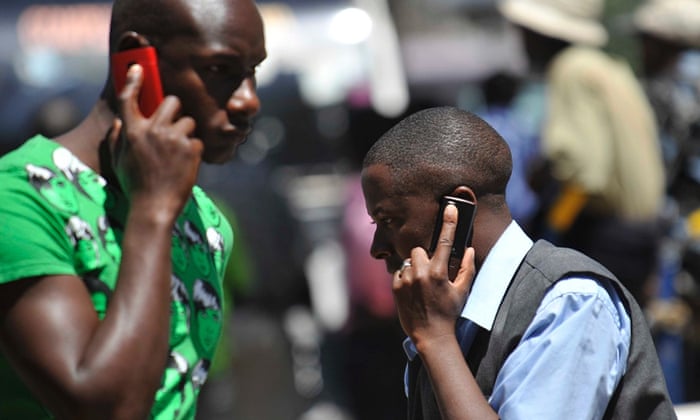Service part-funded by Facebook rolled out in Kenya, Tanzania and Zambia, offering access to health, jobs and social websites

A mobile application created by some of the world’s leading technology companies is giving Africans free access to websites with medical advice, educational tools, job vacancies and local news.
Internet.org, a non-profit service funded by firms including Facebook, Nokia and Samsung, rolled out in Kenya, Tanzania and Zambia this year, allowing mobile users to access a selection of commercial and community-based websites.
Increasing the number of people in developing countries who have internet access could generate $2.2tn in additional gross domestic product (GDP), a 72% increase in the GDP growth rate, and more than 140m jobs, according to a report commissioned by Internet.org (pdf). More than 4.3 billion people do not have internet access, according to the group.
Access to search engines, social media and online marketplaces is essential to create businesses and jobs, the group said.
With the exception of Facebook, all the companies behind Internet.org are mobile phone manufacturers looking to open up markets for their handsets. Facebook plans to deploy drones that are capable of broadcasting internet connections across poorer countries as part of a strategy to expand its user base.
Facebook’s CEO, Mark Zuckerberg, says his firm is developing drones, satellites and lasers that can connect people to the internet: “We’ve made good progress so far. Over the past year, our work in the Philippines and Paraguay alone has doubled the number of people using mobile data with the operators we’ve partnered with, helping 3 million new people access the internet.”
But critics say internet freedoms in developing countries should be prioritised ahead of free services. Writing in the Guardian, digital media professor Dan Gillmor said: “What the developing world – and increasingly, the developed world – needs now are platforms that companies and governments can’t lock down or control. Sorry to say, I don’t look to the tech industry to launch splashy initiatives to research and develop that.”
The app allows users free access to popular websites such as the BBC and Wikipedia. Browsing local sites, such as Jamii Forums messaging board, OLX classified ads and BrighterMonday job listings, is also free. Other websites provide health advice, including Facts for Life, Totohealth, BabyCenter & MAMA, and Unicef Ebola Information.
One company sends Kenyans text messages with advice about prenatal care and children’s health, and coordinates hospital appointments and vaccinations. A sample text message asked mothers to wave their hands in front of their children’s faces to check their eyesight.
Totohealth sends staff to Kenya’s rural areas where they register pregnant women for childcare updates based on the date and location of conception. The text messages highlight warning signs in a child’s health and connect mothers with local hospitals.
The service aims to dispels myths about childcare. It also provides hospitals with a means of contacting registered users as well as information about patients.
Educational sites such as Scholars4Dev, which lists international scholarship opportunities, and e-books site Wattpad are also included in the free service.
No comments:
Post a Comment